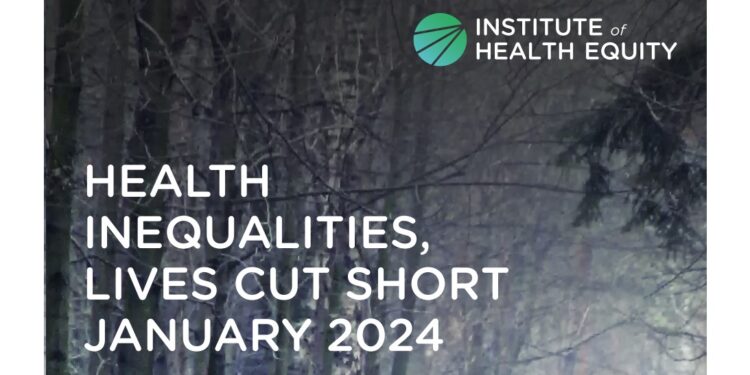Almost a million people in 90% of areas across England lived shorter lives than they should have done in the period between 2011 and the start of the pandemic.
This is according to findings from the Institute of Health Equity’s Health Inequalities, Lives Cut Short report.
The report draws on data sources from the Office for National Statistics (ONS), with the Institute making their calculations from the number of excess deaths (the increase in the number of deaths beyond that would be expected) in the decade from 2011 in England.
Key findings
According to the report, the period from 2011 to 2019 saw 890,000 people dying earlier than they otherwise would have done had they experienced the death rates seen in the least deprived quintile (20%) of areas.
Around 102,000 of these deaths were in addition to what might have been expected based on levels in the two years before 2011.
At the start of the pandemic in 2020, the level of excess deaths rose by over a further 24,000 compared to that over the previous five years.
Based on weekly monitoring figures published by the Office for Health Improvement and Disparities (OHID), there were nearly 11,000 more excess deaths in the most deprived 80% of areas during the pandemic in 2020 than in the least deprived 20%.
The report’s authors conclude that this suggests that more than 13,000 deaths in 2020 (the difference between 24,000 and 11,000 deaths) were associated with the pre-existing trend in mortality due to inequality.
When making the same comparisons with a less deprived group, the least deprived decile (10%) of areas, the report’s authors found these figures reduce, but only slightly, with more than a million people dying earlier than they otherwise would have done in 2011-19.
Around 148,000 of these were additional to what might have been expected based on levels in the two years prior to 2011.
There were around a further 28,000 deaths in 2020 in excess of the level in the previous five years.
Regressive funding cuts
The institute said its findings add weight to its two reviews of health inequalities in 2020 (Marmot Review 10 Years on Review and Covid-19 Marmot Review).
It said the cumulative impact of regressive funding cuts (which hit poorer areas more), associated with austerity, contributed to life expectancy failing to increase, and actually falling for women in the 10% of poorest areas, with health inequalities widening.






